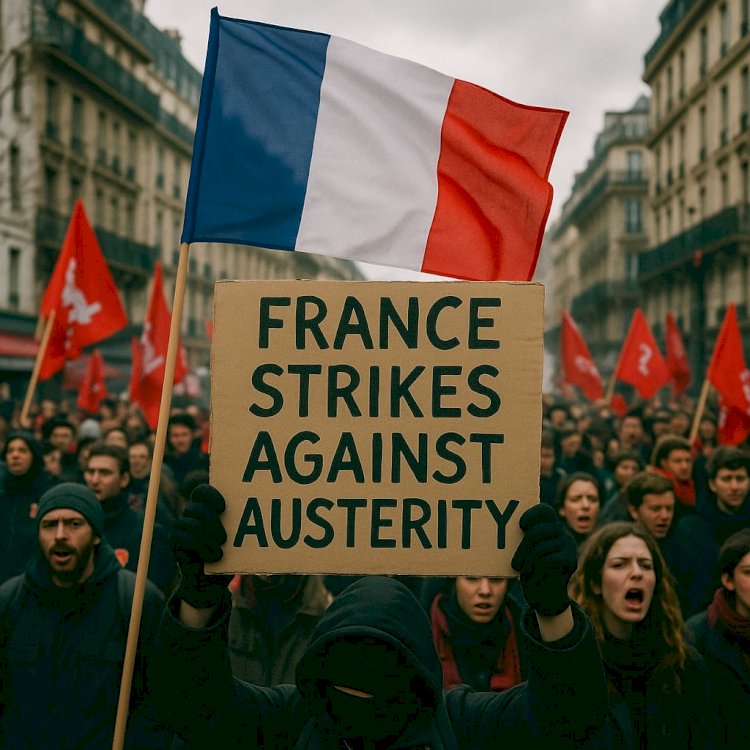France Erupts in Strikes as Austerity Plans Spark Nationwide Backlash

Paris, September 18, 2025 — France witnessed one of its largest waves of industrial action in recent years as workers, students, and unions united in defiance of the government’s proposed 2026 budget cuts. What began as a planned day of protest turned into a sweeping national movement, paralysing transport, shuttering schools, and testing the resolve of President Emmanuel Macron’s administration.
A Day of Disruption
Major trade unions spearheaded demonstrations across more than 200 towns and cities, with Paris, Marseille, Lyon, and Nantes at the epicenter. Public transit ground to a halt in parts of the country, while hospitals and pharmacies operated on reduced staff. The widespread stoppages highlighted the breadth of opposition to austerity measures aimed at trimming tens of billions of euros from state spending.
Union leaders reported participation exceeding one million, though government figures estimated lower numbers. Still, both sides acknowledged the mobilisation was among the largest France has seen since pension reform protests earlier this decade.
Anger Over Budget Cuts
The draft budget unveiled by Prime Minister Sébastien Lecornu proposes significant reductions across public services. Healthcare, education, transport, and pensions are all under review for cutbacks. Officials argue the plan is necessary to rein in France’s mounting deficit and restore investor confidence, but critics say the measures unfairly burden working families and vulnerable groups.
For many demonstrators, the strikes were about more than fiscal adjustments. “It’s not just about numbers on a balance sheet,” one teacher in Paris said. “It’s about the erosion of our public institutions and the future we want for our children.”
Political Ramifications
The unrest marks an early and serious challenge for Prime Minister Lecornu, who stepped into office with promises of stability and dialogue. Instead, he faces a crisis of legitimacy, with unions demanding the withdrawal of austerity measures and opposition parties seizing on the public anger to pressure the government in parliament.
The protests also pose risks for President Macron, who remains determined to enforce fiscal discipline in line with European Union guidelines. Striking a balance between economic credibility and social cohesion has become the administration’s most pressing political test.
What Lies Ahead
Union coalitions have warned that this week’s actions are “only the beginning” unless the budget is reworked. Further demonstrations and rolling strikes are already being planned, with the potential to extend into October.
Talks between government representatives and labor leaders are expected in the coming days, though neither side appears ready to compromise. With daily life disrupted and tempers rising, France faces the prospect of a drawn-out confrontation that could shape the country’s political and economic trajectory for years to come.
The protests underscore the high stakes of the budget debate: a battle between fiscal austerity and social welfare that goes to the heart of France’s identity. Whether the government bends or holds firm may determine not only the fate of the 2026 budget but also the broader stability of Macron’s second term.

 content-team
content-team 


















